Luz Vazquez is a first-generation student studying public policy at the College of Social Science who is graduating a semester early this fall. Vazquez is the daughter of migrant farmers from Mulberry, Florida.
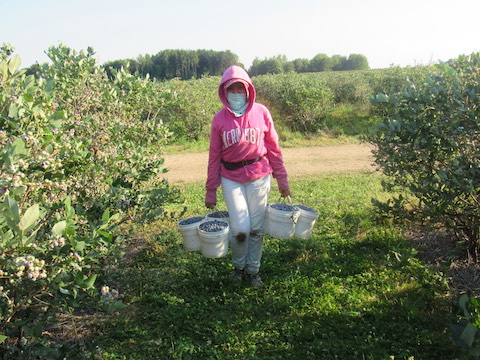
From the long hours standing or kneeling to working bent to the ground harvesting crops in the extreme heat — my background of farm working will always be with me. As a first-generation student graduating with my bachelor’s degree in political science, it’s still hard to believe that my days in the fields — 19 years old, worrying and unsure about what was next — would lead me to Michigan State University.
Moving to Michigan was not new to me. Growing up, I migrated with my family from Florida to Michigan to follow the seasonal crops. From age 14 to 19, I had firsthand experience picking various crops, including strawberries, squash, blueberries, cherries and more.
I first learned about the College Assistant Migrant Program, or CAMP, at MSU through my older brother, who had the opportunity to attend MSU and benefit from the program. Additionally, the recruitment MSU CAMP did at my high school made me aware of their program. Seeing my brother succeed in college, especially with the support of CAMP, motivated me to apply. I qualified for the program and saw it as a valuable opportunity to receive the support I needed to pursue higher education.
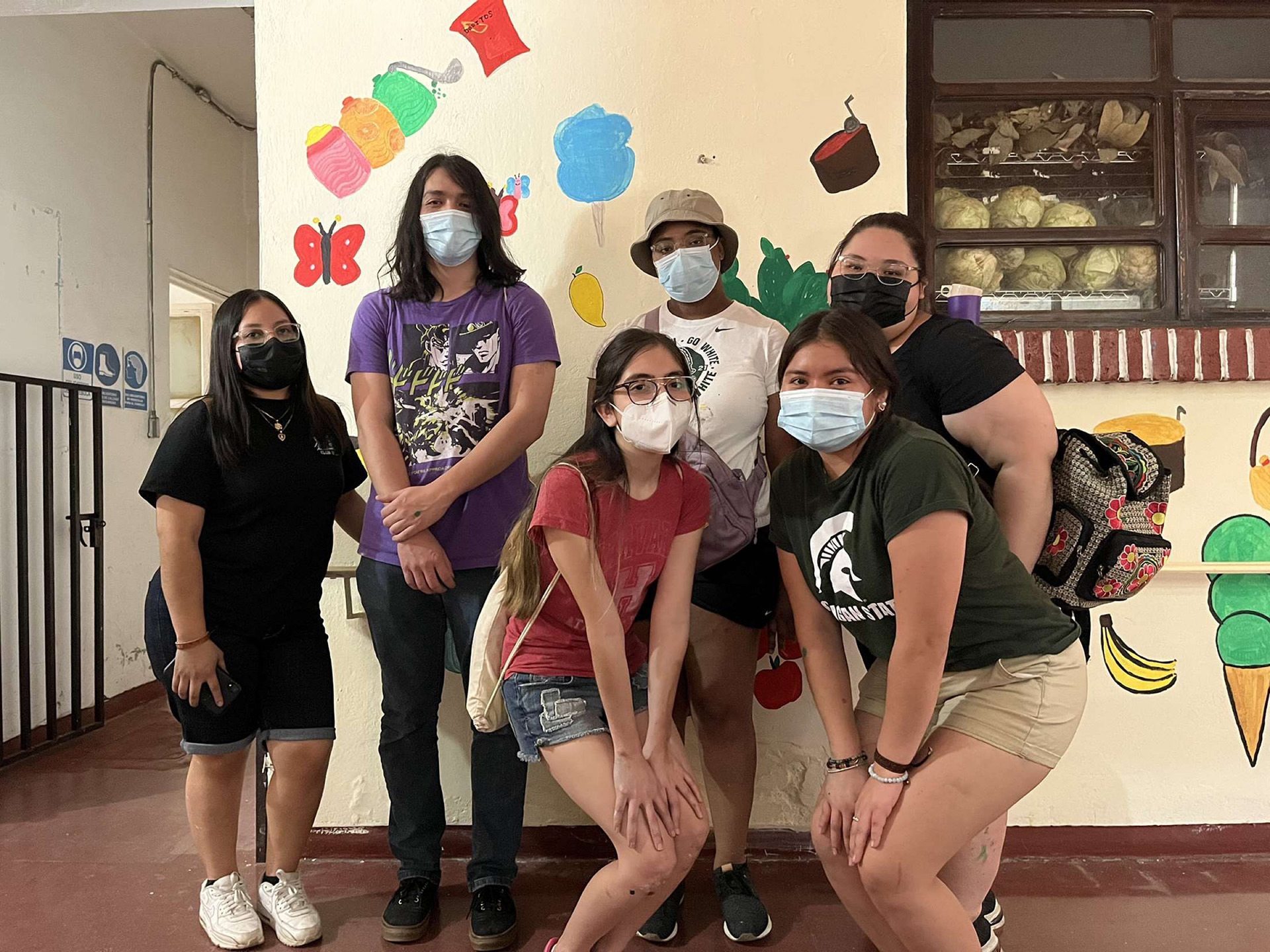
When I arrived at MSU, CAMP welcomed me to my new home. In a new environment, with little to no clue how to navigate college, CAMP immediately guided my cohort and me, introducing us to many leaders and new organizations and providing continuous resources throughout my first year.
As MSU transitioned back to in-person lectures following the COVID-19 pandemic and I saw more students face-to-face, I knew this was my chance to meet new people and get involved.
Being in CAMP, I had the opportunity to participate in my first education abroad with the International Engagement to Mexico, or IEM program, where I spent my spring break volunteering in Oaxaca. Throughout this experience, I was reminded of my culture and my passion for giving back to my community.
As I returned for my second year at MSU, I remember telling myself that I would be involved around campus, take leadership roles and make new friends. Once the fall semester began, I was excited to join a new student organization called Latino Leaders in Policy in addition to participating again in the IEM program, this time returning as a site leader.
More importantly, I was beyond grateful that I would start my first internship on campus with University Communications and Marketing and the Office for Institutional Diversity and Inclusion.
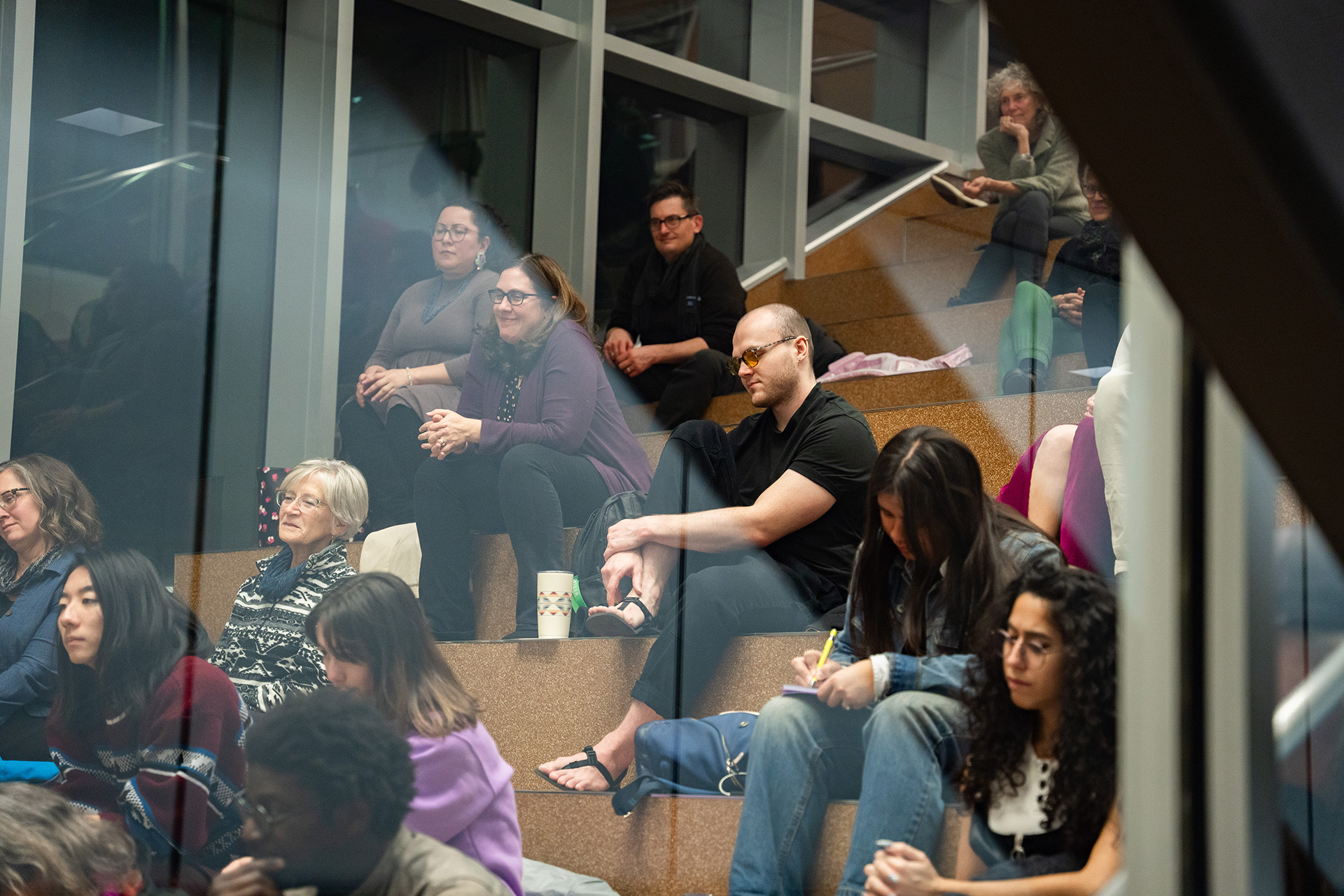
In my position, I quickly learned from sharing my story on various platforms that MSU migrant farmworker students lacked representation. I wanted to help others tell their own stories and bring recognition to different community groups on campus.
My passion for storytelling and advocating for farmworkers led me to drive a year-long campaign that included stories and content to raise awareness of the migrant and farmworker community on campus.
During the campaign, I worked closely with CAMP staff, specifically Luis Alonzo Garcia, director of Migrant Student Services, and Elias Lopez, senior associate director of CAMP, who supported me by inviting me to farmworker-focused events to help with new story ideas or networking opportunities.
By attending these events, I connected with Associate Professor David Mota-Sanchez and learned about the MSU Great Lakes Latina/o Farmers Program, formerly La Cosecha, which offers bilingual training for first-generation farmers to support them in improving their processes and farms.
After discovering this program and knowing that MSU has a community of students, faculty and others from farmworker backgrounds, I wanted to honor them as valuable contributors to agriculture and society.
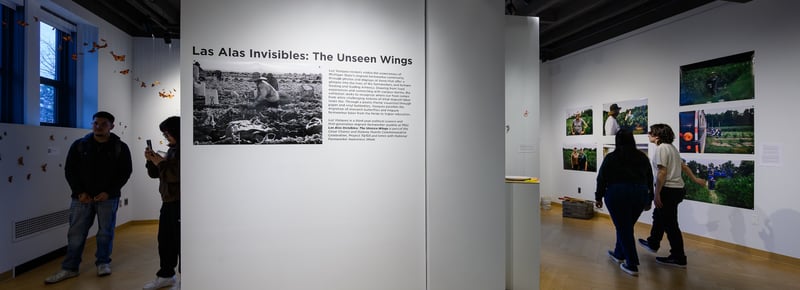
To recognize their essential role, I created an art exhibition named Las Alas Invisibles: The Unseen Wings to launch with National Farmworker Awareness Week. The exhibition was themed on the shared northbound migration journey between farmworkers and monarch butterflies during the harvesting season.
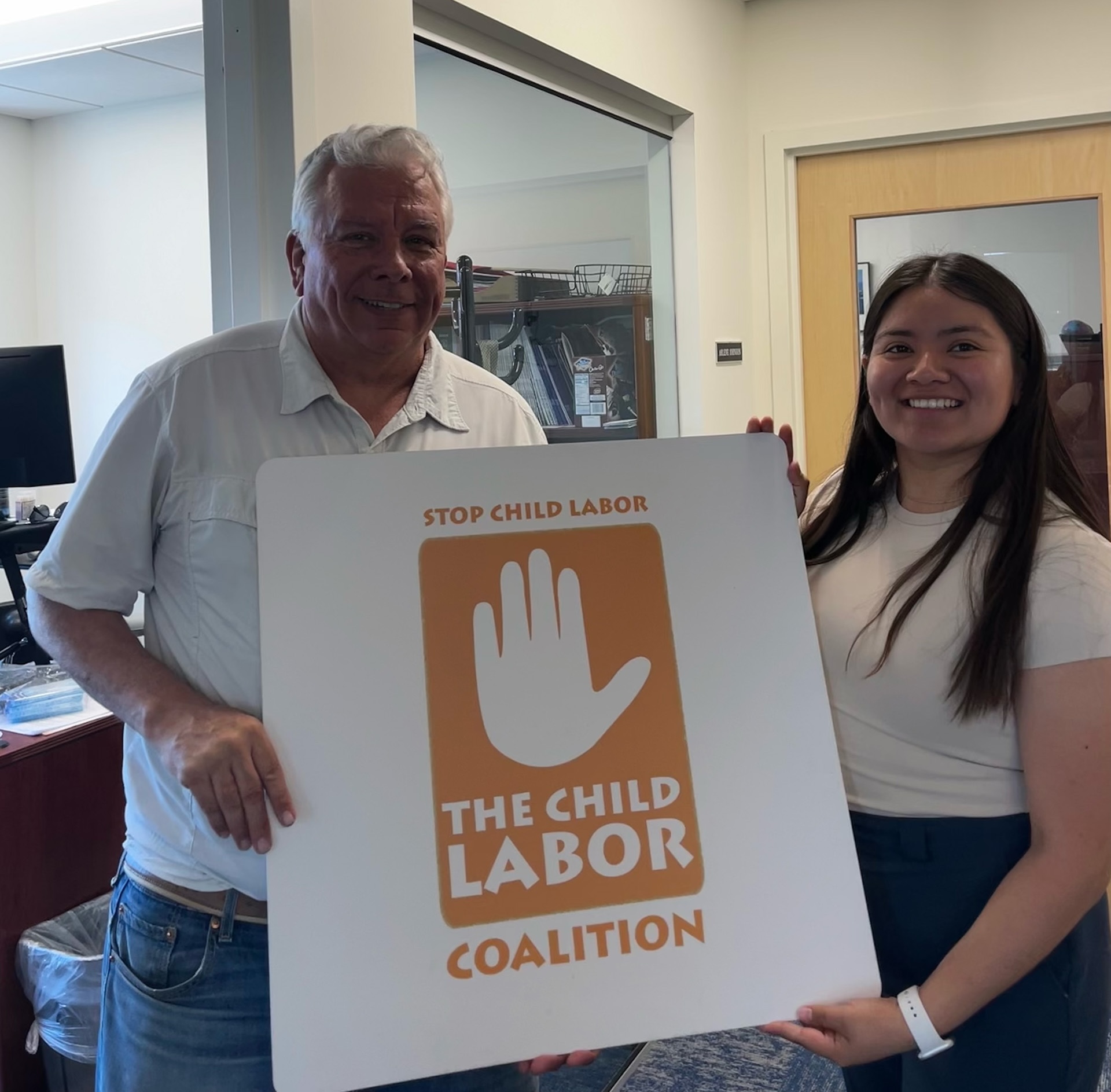
My exhibit featured a video, over a dozen MSUToday stories, farm working photos from community members, a display of fieldwork clothing and tools, and a collection of CAMP yearbooks to show visitors a window into farmworkers’ lives and recognize the labor that feeds America.
With the support and encouragement of my supervisor and mentor, Communications Manager Henry Mochida, I embraced my passion for advocacy and gave back to the farmworker community by amplifying the voices of farmworker students, raising cultural awareness on campus and celebrating our shared achievements.
As I graduate from MSU as a proud Spartan, I am eager to pursue higher education in public policy, aiming to become an analyst focused on environmental research. Inspired by my farmwork background, I strive to advocate for environmental justice and protection for farmworkers to give back to the community that shaped me and create meaningful change for future generations.